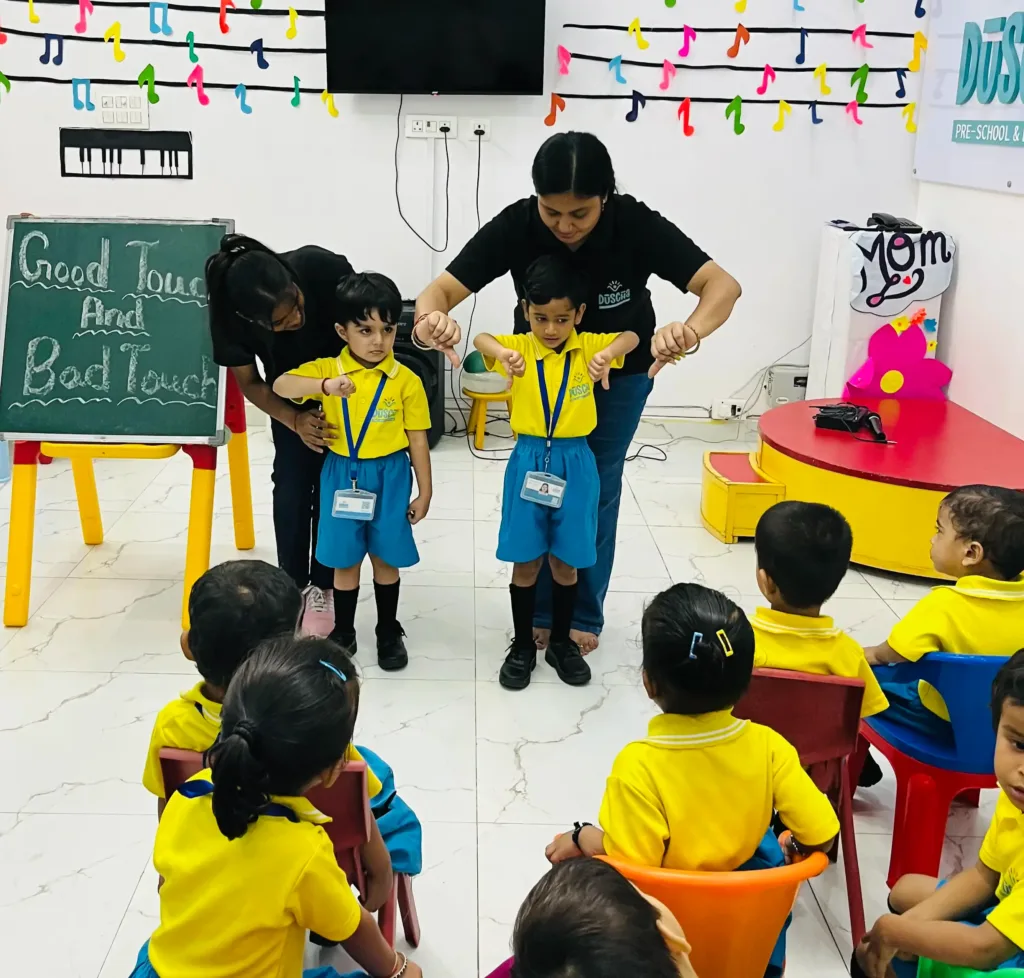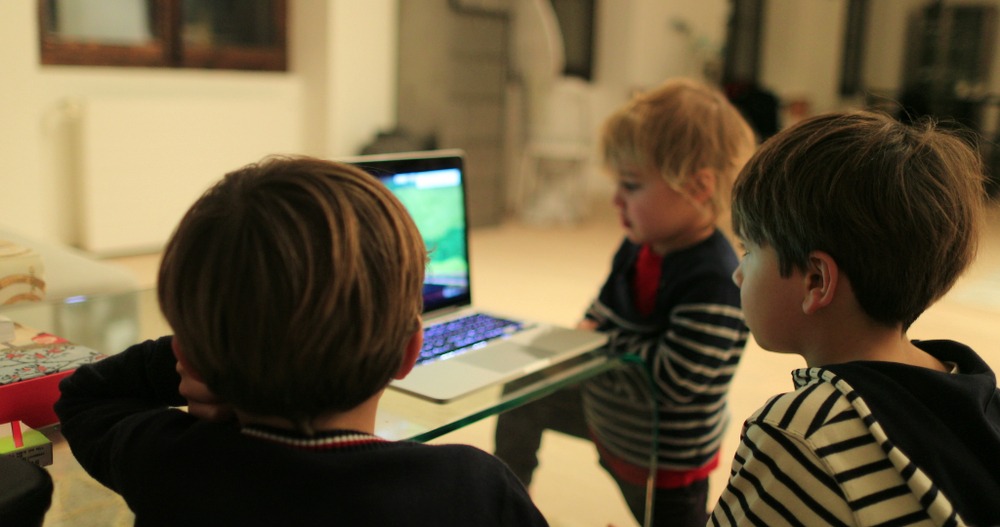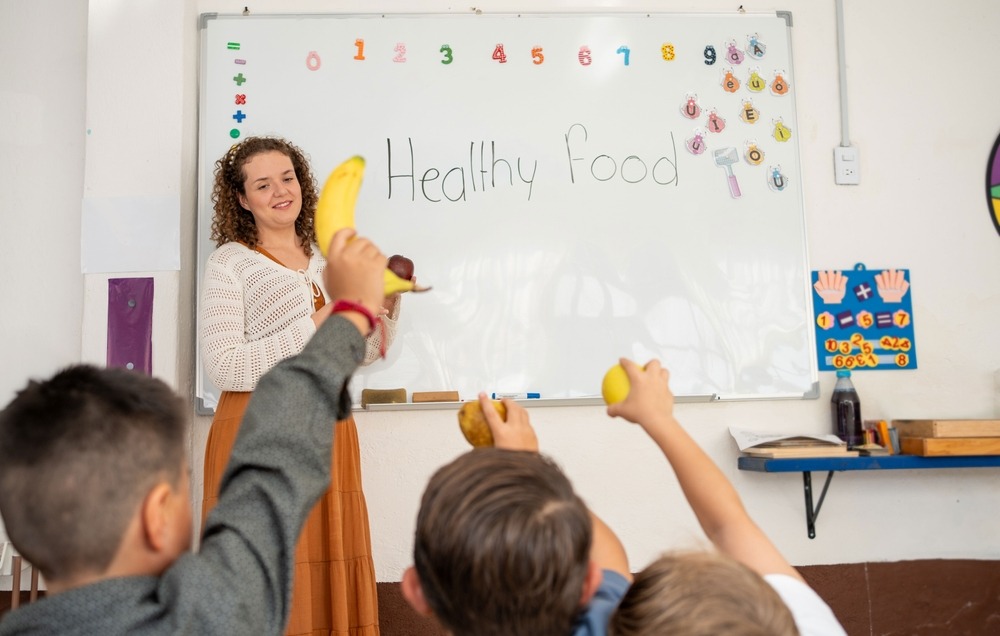Introduction
At Duscha Pre-School and Daycare in Ashiyana, Lucknow, we recognize the crucial role of teaching our little ones about personal safety. One vital aspect of this is educating them about good touch and bad touch. While this topic may seem challenging, rest assured, we have gathered some impactful tips to help guide you through this essential blog.
Why Teaching Good Touch Bad Touch is Important
Kids are naturally curious and often do not understand the boundaries of personal space. Teaching them about good touch and bad touch helps protect them from potential harm and makes them aware of their bodies. This education is very important for our children.
How to Start Teaching Good Touch Bad Touch to Preschoolers
Create a Safe Environment
Ensure your kids feel safe and comfortable coming to you with any concerns. Only then will he be able to tell you everything about himself. Foster an open and trusting relationship where they know they can talk to you about anything without fear of judgment or punishment.
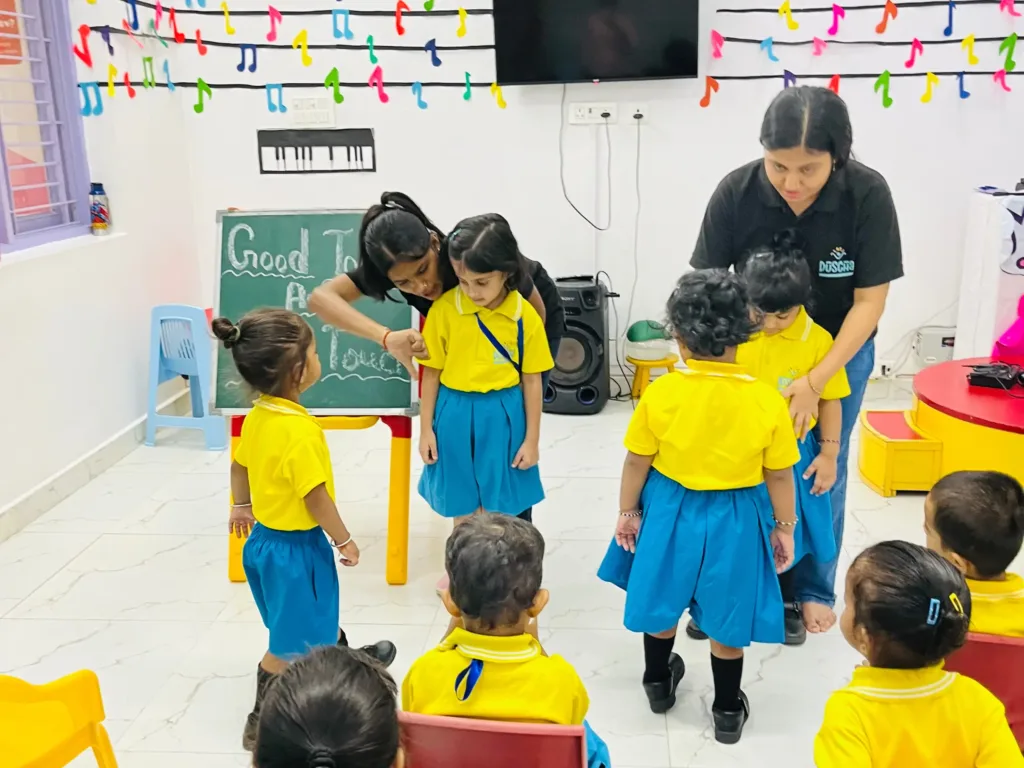
Explaining Good Touch and Bad Touch
When talking about good touch and bad touch, use examples that kids can easily understand. Explain that good touches are those that make them feel happy, safe, and loved, like a hug from a parent or a high-five from a friend. A bad touch makes them feel scared, uncomfortable, or confused. Tell them it’s important to let a trusted adult know if they ever experience a bad touch.

Incorporate Safe Touch Education into Daily Routines
Incorporate safe touch education for kids into daily routines. When giving them a hug or a pat on the back, explain that this is a good touch. During bath time, you can talk about private parts and explain that certain areas are private and should not be touched by others except for health or hygiene reasons.
Use Visual Aids
Visual aids like books, videos, and charts can be very effective in teaching your child about good touch and bad touch. There are many child-friendly resources available that can help explain these concepts engagingly and understandably. Only then are children able to know what is right touch and what is wrong touch.
Encourage your kids to ask questions
Encourage your kids to ask questions. They might have doubts or be confused about certain touches. Be patient and answer their questions honestly and clearly. This helps them feel more confident and informed.By having correct information, they will be able to know properly about right touch and wrong touch, hence we must encourage our children to ask questions.
Be Aware of Your Child’s Behavior
Many times it happens that we ignore the changes in the behaviour of our children, but this is not right. Pay attention to any changes in your child’s behavior. If they become withdrawn, anxious, or show reluctance to be around certain people, these could be signs that something is wrong. Always take their concerns seriously and investigate further if needed.
Teach Good Manners in Addition
While you’re teaching your child about good touch and bad touch, it’s also a great time to teach good manners. Explain the importance of respecting others’ personal space and always asking for permission before touching someone. This reinforces the concept of mutual respect and boundaries. Good values define the personality of the child.
Use Correct Terminology
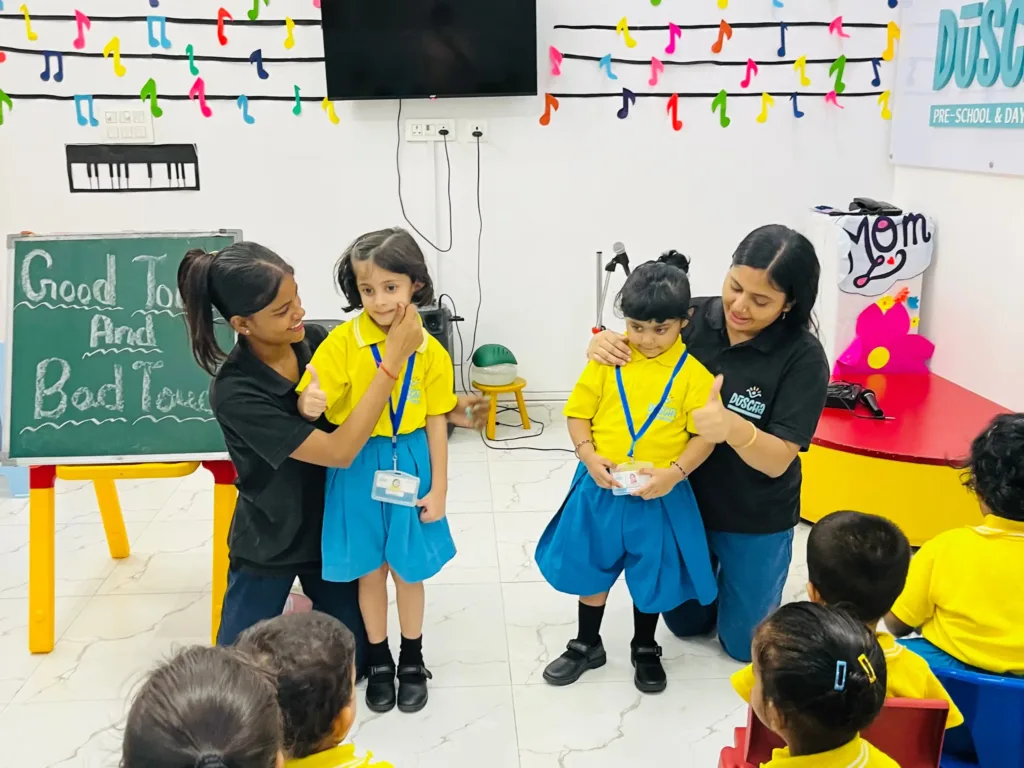
Teach your child the correct names for their body parts. This not only helps in clear communication but also empowers them to express themselves accurately if they ever need to talk about their bodies.
Encourage Open Communication
Many times children are not able to share their thoughts with their parents, so it is necessary that they can talk to you about anything, anytime. Encourage them to share their feelings and experiences. This helps build a foundation of trust and ensures they feel comfortable coming to you with any problems or questions.

Involve Other Caregivers
It is also important that those who take care of your children should also be aware of right touch and wrong touch. Make sure that other caregivers, such as grandparents, babysitters, and teachers, are also aware of and reinforce the concepts you’re teaching your child. Consistency is important, and having everyone on the same page ensures your child receives the same messages from all adults in their life.
Know the Signs of Abuse
Many times the parents are not aware of the child’s behaviour. Educate yourself about the signs of child abuse. This knowledge can help you identify if something is wrong and take necessary action to protect your child. Trust your instincts and seek professional help if you suspect any abuse.
Utilize School Resources
Get your children admitted to schools where programs are conducted on child awareness. Many preschool and daycare centers have programs and resources for teaching good touch and bad touch. Utilize these resources and participate in any workshops or seminars offered. This can provide additional support and information for both you and your child. In Lucknow, Ashiyan You can choose Duscha Preschool and Daycare. We teach good touch bad touch to our children, brain development games, children’s activities, gross motor skills, playful activity, play-based learning many more things we teach our children’s
Reinforce Positive Behaviour
Whenever your children do any good work then praise them Praising children’s morale increases for good work. When your child demonstrates understanding and application of these concepts, praise and encourage them. Positive reinforcement helps build their confidence and reinforces the importance of what they’ve learned.
Keep the Conversation Going
As your child grows, continue to discuss personal safety and boundaries. Adjust the conversation to be age-appropriate and address any new concerns or situations they might encounter. Keeping the dialogue open ensures that they remain informed and vigilant.
Conclusion
Teaching your child about good and bad touch is essential to their safety and well-being. At Duscha Pre-School and Daycare in Ashiyana, Lucknow, we are committed to supporting parents in this important task. By following these tips and maintaining open communication, you can help your child understand and navigate their boundaries with confidence and security. We hope you found these tips helpful
If you have any questions or need further support, feel free to reach out to us. We’re here to help you and your child every step of the way.
Here are just a few of the programs we offer at Duscha PreSchool & Day Care:
- No Tuition Fee Hike for the Next Academic Session
- Modern Preschool Technology-Oriented Infrastructure
- Air-Conditioned Smart Classes
- Safe Pickup and Drop Facility
- Montessori Way of Learning
- Dedicated Computer Labs and Library
- Quarterly Health Check-up Camp for Duscha Students
- Experienced Teachers
- Affordable Fees
At Duscha PreSchool & Day Care, we understand that every child is unique, and we strive to create a learning environment that is tailored to their individual needs. Our experienced staff works closely with parents to ensure that each child receives the support and attention they need to thrive.
So if you’re looking for the best kids school in Ashiyana, Lucknow, look no further than Duscha PreSchool & Day Care. With our commitment to excellence, individualized attention, and top-notch educational programs, we are the best choice for parents who want to give their children a strong foundation in education.
But don’t just take our word for it – come see for yourself! Schedule a tour of our air-conditioned play school in Lucknow today, and discover why Duscha PreSchool & Day Care is the best school in Ashiyana, Lucknow.
Frequently Asked Questions
Yes, daycare teaches children independence and confidence by helping them to learn things by doing themselves like cleaning up and getting dressed. Children feel proud when they do the task on their own. Daycare encourages them to try new things and solve problems independently.
In daycare, children follow daily routines like circle time, snake time, and playtime. They learn to listen to teachers, share toys, and take turns. By practicing these routines, children get ready for school schedules and structure. They learn to follow instructions, cooperate with others, and respect authority.
Yes, daycares provide a safe environment for kids to explore and make friends by giving them space and increasing confidence. In daycare, children get to know basic manners like sharing, helping others, cleaning toys, and sharing with others, and through this, they make bonds with others happily.
Daycare helps kids develop social skills, independence, and confidence. These qualities set a good and strong foundation for their future growth and success. By interacting with others and following routines, children learn valuable life skills. Daycare encourages curiosity, creativity and prepares them for challenges ahead. Overall, daycares play a very crucial role in shaping children into well-rounded individuals ready to face the world.
At daycare, kids enjoy many activities like arts and crafts, storytelling, and outdoor play. These fun experiences help them learn and grow. Through play, children develop creativity, motor skills, and social bonds. Other activities like singing, dancing, and playing on stages build confidence. games or a “Holiday Magic” week with festive activities like decorating cookies and making holiday cards.
We also celebrate major holidays like Christmas and New Year’s with special events and decorations. It’s a great way for children to learn about different traditions and have fun together.
